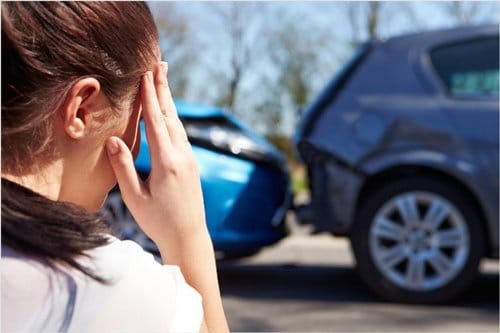
No one really wants to talk about their last will and testament, but this is one legal issue you don’t want to leave unattended. After all, it could lead to a major rift in your family, one which you are not around to mend.
The importance of having a very clear will and testament takes on even greater magnitude if you have children from more than one marriage, if you have adopted children, and if you don’t have any children at all. Getting expert advice can save your loved ones heartache and grief at a time when they really need to focus on grieving and recovery.
1. Accident Fault
The law enforcement officers who respond to your accident will assess the situation to determine if they should issue any traffic citations to the drivers involved. Drivers who openly accept fault by apologizing or saying they should have done something differently are more likely to be assigned this type of fault.
In reality, legal fault is often complicated. You may not have a clear idea of who was at fault under the law. Let law enforcement come to their own conclusions about fault at the scene.
If you are found at-fault, this finding could affect your liability for the accident and insurance coverage on top of the citation fine.
2. Liability
Accident liability is related to accident fault, but these things are not always the same. Liability applies when a personal injury lawsuit is filed. A personal injury suit is pursued to prove that one party caused the accident and resulting injuries through recklessness or negligence.
Admitting to running a red light or looking down at your radio could point to you being liable for the incident. If you give a statement to this effect, your statement can be used as evidence in a personal injury suit, even if you actually went through a yellow light but weren’t sure or had returned your eyes to the road before the collision.
3. Medical Care
The rush of adrenaline after a minor accident leads many drivers to overlook the symptoms of common injuries. Additionally, some car accident injuries appear later, which means that it can take hours or days for you to notice them.
If you assure the other driver and the officers that you are not hurt, these claims could force you to file a personal injury claim in order for the other driver’s insurance to cover any medical care once your symptoms manifest.
Additionally, once you have said that you aren’t hurt, you may fail to connect developing symptoms to your accident, which may delay vital treatment and put gaps in evidentiary medical records you would need in a lawsuit.
4. Secondary Legal Consequences
While many drivers feel compelled to reassure everyone that they are fine after an accident, plenty of other drivers have the instinct to react angrily or even aggressively. While this reaction is normal under the circumstances, resist yelling at the other driver or starting a fight.
If your reaction prevents injured parties from receiving emergency medical care or amounts to assault, you could face arrest and all of the additional complications that result from the criminal law process. An arrest would also weigh into insurance company and court decisions about your compensation for the accident.
5. Settlement
When your car collides with someone else’s, you may instantly fear for the worst. Once you realize that the accident is not as serious as it could be, you may automatically want to verbally comfort yourself by saying that the damage to your vehicle or inconvenience to your day is not as bad as it could be.
However, these minimizing statements have the same effect as saying that you are not injured. Insurance companies calculate settlements based on the effect the collision has on your life. A fair settlement should at least cover any repair costs and lost income, including income from days you have to take off of work after the accident.
If you say that the situation is not bad, you may face more out-of-pocket costs or need to file a personal injury suit just to get a settlement that covers the majority of your costs.
When you feel tempted to make a statement about your car accident, take a moment to evaluate how what you say could potentially affect the situations listed above. Never knowingly provide false information, don’t say you know something happened when you don’t know or volunteer extra information.
If you have a question about a particular statement you have already made or have considered making, discuss your obligations, your options, and the possible ramifications with an experienced car accident attorney.
For expert auto accident personal injury services, trust the team at Baumgartner Law.
ll…





No one really wants to talk about their last will and testament, but this is one legal issue you don’t want to leave unattended. After all, it could lead to a major rift in your family, one which you are not around to mend.
The importance of having a very clear will and testament takes on even greater magnitude if you have children from more than one marriage, if you have adopted children, and if you don’t have any children at all. Getting expert advice can save your loved ones heartache and grief at a time when they really need to focus on grieving and recovery.
1. Accident Fault
The law enforcement officers who respond to your accident will assess the situation to determine if they should issue any traffic citations to the drivers involved. Drivers who openly accept fault by apologizing or saying they should have done something differently are more likely to be assigned this type of fault.
In reality, legal fault is often complicated. You may not have a clear idea of who was at fault under the law. Let law enforcement come to their own conclusions about fault at the scene.
If you are found at-fault, this finding could affect your liability for the accident and insurance coverage on top of the citation fine.
2. Liability
Accident liability is related to accident fault, but these things are not always the same. Liability applies when a personal injury lawsuit is filed. A personal injury suit is pursued to prove that one party caused the accident and resulting injuries through recklessness or negligence.
Admitting to running a red light or looking down at your radio could point to you being liable for the incident. If you give a statement to this effect, your statement can be used as evidence in a personal injury suit, even if you actually went through a yellow light but weren’t sure or had returned your eyes to the road before the collision.
3. Medical Care
The rush of adrenaline after a minor accident leads many drivers to overlook the symptoms of common injuries. Additionally, some car accident injuries appear later, which means that it can take hours or days for you to notice them.
If you assure the other driver and the officers that you are not hurt, these claims could force you to file a personal injury claim in order for the other driver’s insurance to cover any medical care once your symptoms manifest.
Additionally, once you have said that you aren’t hurt, you may fail to connect developing symptoms to your accident, which may delay vital treatment and put gaps in evidentiary medical records you would need in a lawsuit.
4. Secondary Legal Consequences
While many drivers feel compelled to reassure everyone that they are fine after an accident, plenty of other drivers have the instinct to react angrily or even aggressively. While this reaction is normal under the circumstances, resist yelling at the other driver or starting a fight.
If your reaction prevents injured parties from receiving emergency medical care or amounts to assault, you could face arrest and all of the additional complications that result from the criminal law process. An arrest would also weigh into insurance company and court decisions about your compensation for the accident.
5. Settlement
When your car collides with someone else’s, you may instantly fear for the worst. Once you realize that the accident is not as serious as it could be, you may automatically want to verbally comfort yourself by saying that the damage to your vehicle or inconvenience to your day is not as bad as it could be.
However, these minimizing statements have the same effect as saying that you are not injured. Insurance companies calculate settlements based on the effect the collision has on your life. A fair settlement should at least cover any repair costs and lost income, including income from days you have to take off of work after the accident.
If you say that the situation is not bad, you may face more out-of-pocket costs or need to file a personal injury suit just to get a settlement that covers the majority of your costs.
When you feel tempted to make a statement about your car accident, take a moment to evaluate how what you say could potentially affect the situations listed above. Never knowingly provide false information, don’t say you know something happened when you don’t know or volunteer extra information.
If you have a question about a particular statement you have already made or have considered making, discuss your obligations, your options, and the possible ramifications with an experienced car accident attorney.
For expert auto accident personal injury services, trust the team at Baumgartner Law.
ll…
